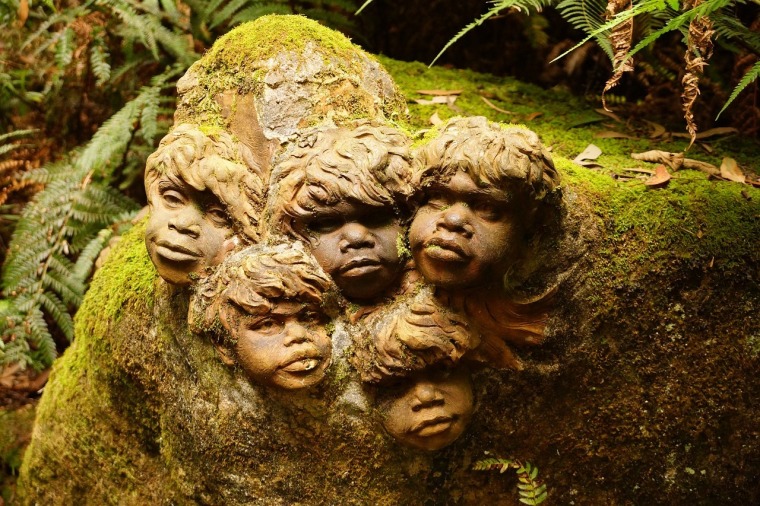
Australia is traditionally conservative when it comes to matters of the Constitution and for good reason.
It is a remarkable document that has provided foundation for stable government since Federation.
They call us the lucky country, we have never had a Civil war, we have never lived under tyranny and we have free and fair elections.
Sure we have had alterations, there have only been 8 changes in 44 attempts since.
These attempts included filling casual senate vacancies, the rights of territory citizens to vote in referendums and for federal judges to retire at 70.
In 1967 the Liberal-Country Party Government of Harold Holt called a referendum to allow the Federal Government to make special laws for Indigenous Australians in states and to include ALL Indigenous Australians in population counts.
Since 1967 as they should always been considered part of the population because they are part of the population they are Australian citizens.
This latest Referendum however is less straightforward.
On the surface it seems like the right thing to do, we all want to make moves towards reconciliation and we all want to love our neighbours but I don’t think the Voice is the way to do it.
It’s highly unlikely national reconciliation will be achieved?
I find it extremely unlikely that The Voice will be a step towards reconciliation.
Because I am sceptical that the Uluru Statement is a reliable measure of Aboriginal sentiment towards The Voice.
Make no mistake The Voice is just as divisive amongst Indigenous People as it is amongst the nation.
The Uluru Statement is a sample of just 300 out of 812,000 who currently identify as Indigenous Australian according to the 2021 Census or 0.0369% of the Indigenous population; this is a miniscule sample size.
Should we simply hang the case for a major change to our Constitution based on a sample of just 0.0369%?
According to Warren Mundine, “The Uluru statement was endorsed at a convention attended by just 250 delegates selected from 14 communities “Dialogues” These were capped at 100 attendees with only 60% of places allocated to Indigenous people. Attendance was by invitation only which according to the Referendum Council was to ensure each dialogue reached a consensus.”
In other words it was ‘stacked’ and despite being handpicked, several delegates rejected the Uluru statement and walked out of the convention.
Some signatories to the Uluru Statement have stated that they never meant their signatures to represent consent to a Voice and are now angry at the Voice movement.
Even Stan Grant, an advocate for The Voice stated discomfort some Indigenous Australians have with members of some Indigenous tribes making decisions on behalf of others.
To me the idea that The Voice is an overwhelming support of Indigenous sentiment to be “shaky” at best which shows me there is little evidence to show this is a step towards reconciliation.
Plus there is little sentiment of what National Reconciliation would look like? How do we know if this Voice is a step towards reconciliation?
How do we know if two complex population groups are reconciled, what was the 2008 National Apology about?, there have been decades of land rights, tens of billions of dollars a year spent of Indigenous well being?, Indigenous issues prevalent in the national curriculum, is this not reconciliation? How do we know if we have arrived? What is the desired goal?
Across Australia we have 22 Indigenous members of parliament at State and Federal level, according to author Gary Johns, roughly 60% of Indigenous marriages throughout Australia involve a non-indigenous spouse, surely nothing says reconciliation between races more than interracial marriage.
Perhaps the question should be, is there National Forgiveness?
I am yet to hear the word forgiveness uttered in this discussion of reconciliation, what would forgiveness even look like? Again very difficult to achieve amongst such a diverse population group that themselves are not united.
Since historical wrongs can never be made right this side of eternity no matter how sincere reconciliation attempts might be. Might it be more helpful to move the conversation away from talk of reconciliation? For it seems to me we are sending a message that we are not reconciled that we are somehow at war and that is very dangerous for anyone let alone Christian Leaders to be communicating. It is very dangerous rhetoric, perhaps national reconciliation is achieved through individuals rather than as a national collective with Christ at the centre of all reconciliation.

Ben Kruzins is the Campus Pastor of The Hub Baptist Church in Ocean Shores on the North Coast of New South Wales. He is also a Journalism graduate who has written articles in The Canberra Times and The Sydney Morning Herald.